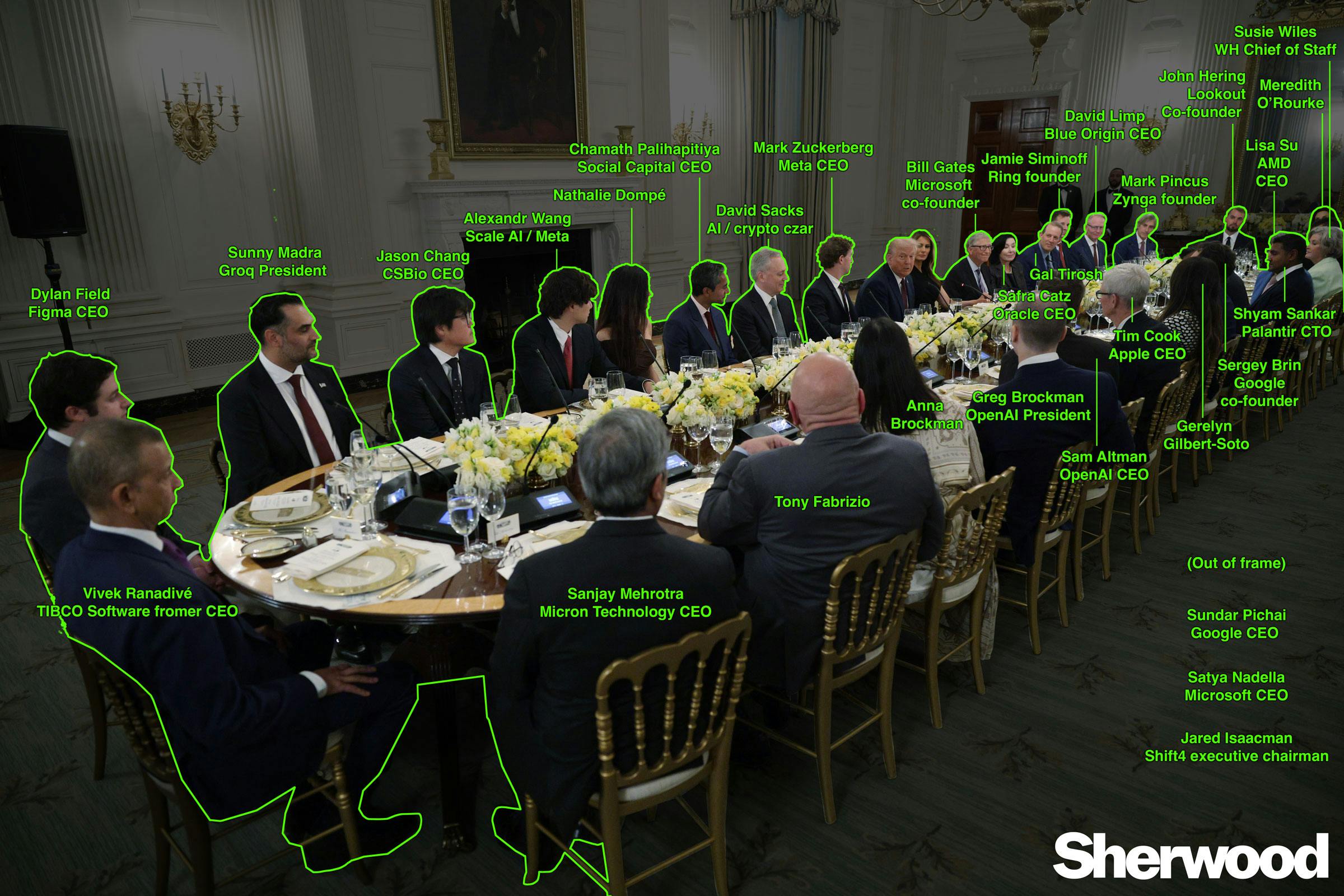An interactive who’s-who of the tech execs at Trump’s White House dinner
The White House invited a gaggle of top founders and tech executives for an intimate dinner at the White House.
A who’s-who of tech executives and AI power players sat side by side at a long table in the White House on Thursday evening to lather President Trump with praise for his leadership on AI.
Billed by White House spokesperson Davis Ingle as “the hottest place to be in Washington, or perhaps the world,” the exclusive dinner was packed with “the most brilliant people,” according to Trump, who said, “This is a high-IQ group.”
Proximity is power, and none of the tech figures were closer to Trump than Meta’s CEO, Mark Zuckerberg. Photos from the dinner showed the two laughing and chumming it up, a remarkable turn of fortune for Zuckerberg, who Trump once famously warned might “spend the rest of his life in prison” if he interfered in the 2024 presidential election.
Attendees included:
Dylan Field, Figma CEO
Sunny Madra, Groq president
Jason Chang, CSBio CEO
Alexandr Wang, Meta’s chief AI officer
Nathalie Dompé
Chamath Palihapitiya, Social Capital CEO
David Sacks, the White House’s “AI and crypto czar”
Mark Zuckerberg, Meta CEO
President Trump
First Lady Melania Trump
Bill Gates, Microsoft cofounder
Safra Catz, Oracle CEO
Gal Tirosh
Jamie Siminoff, Ring founder
David Limp, Blue Origin CEO
Mark Pincus, Zynga cofounder
John Hering, Lookout cofounder
Lisa Su, Advanced Micro Devices CEO
Meredith O’Rourke
Susie Wiles, White House chief of staff
Shyam Sankar, Palantir CTO
Sergey Brin, Google cofounder
Gerelyn Gilbert-Soto
Tim Cook, Apple CEO
Sam Altman, OpenAI CEO
Greg Brockman, OpenAI president
Anna Brockman
Tony Fabrizio
Sanjay Mehrotra, Micron CEO
Vivek Ranadivé, former TIBCO Software CEO and current CEO of Sacramento Kings
Satya Nadella, Microsoft CEO
Sundar Pichai, Google CEO
Jared Isaacman, Shift4 CEO
Notable absences
Perhaps more interesting than who was invited to the dinner was who didn’t attend.
Never one to hold a grudge, former “First Buddy” and Tesla CEO Elon Musk posted on X that he was invited, but would send a representative. It’s unclear if the Musk/Trump beef is heating up again.
Also absent was a representative from the company that is powering all of the AI that everyone was gushing about and recently struck a remarkably unusual trade deal with the White House: Nvidia. CEO Jensen Huang was notably missing from the gathering, but maybe he prefers one-on-one dinners at Mar-a-lago.
